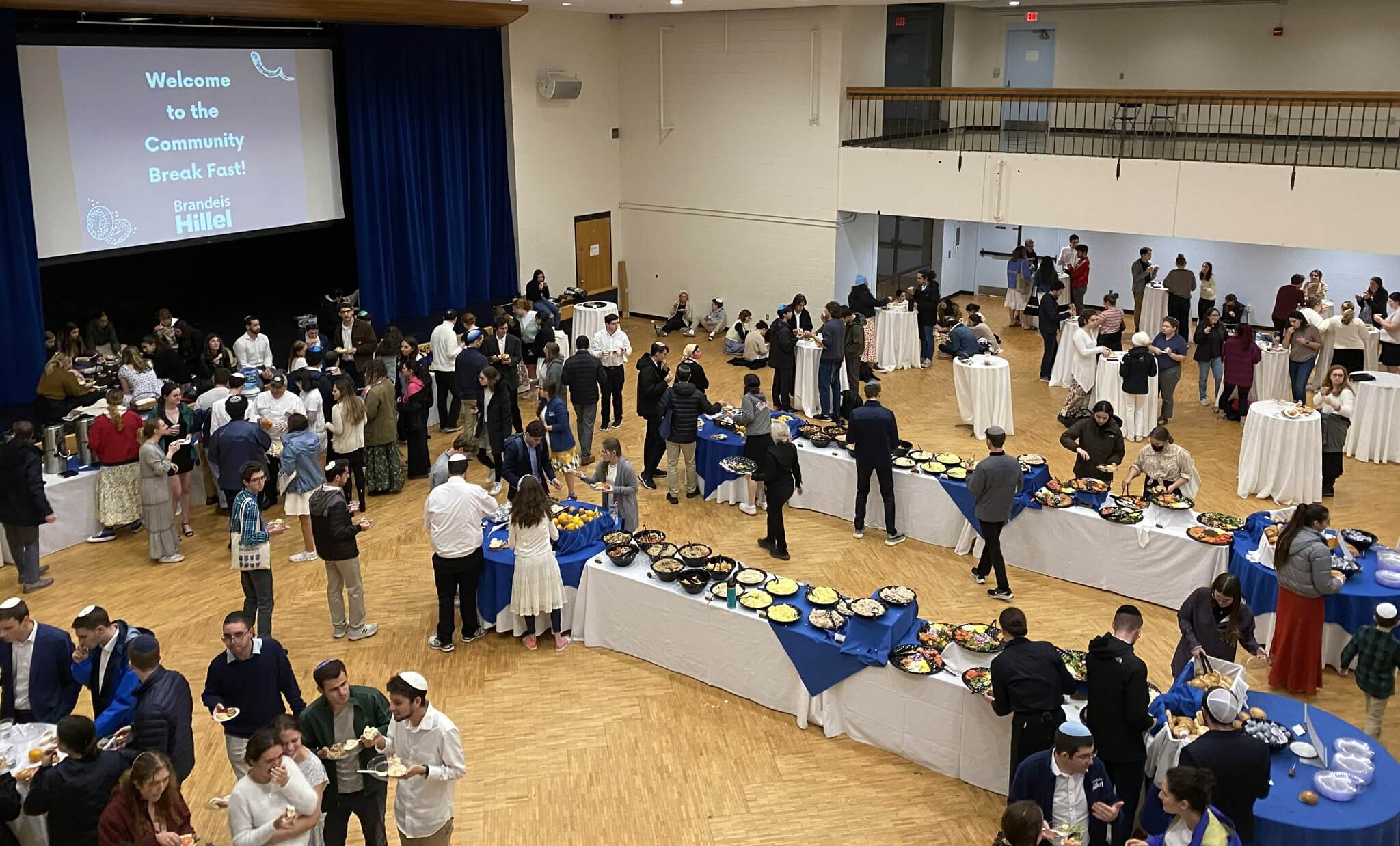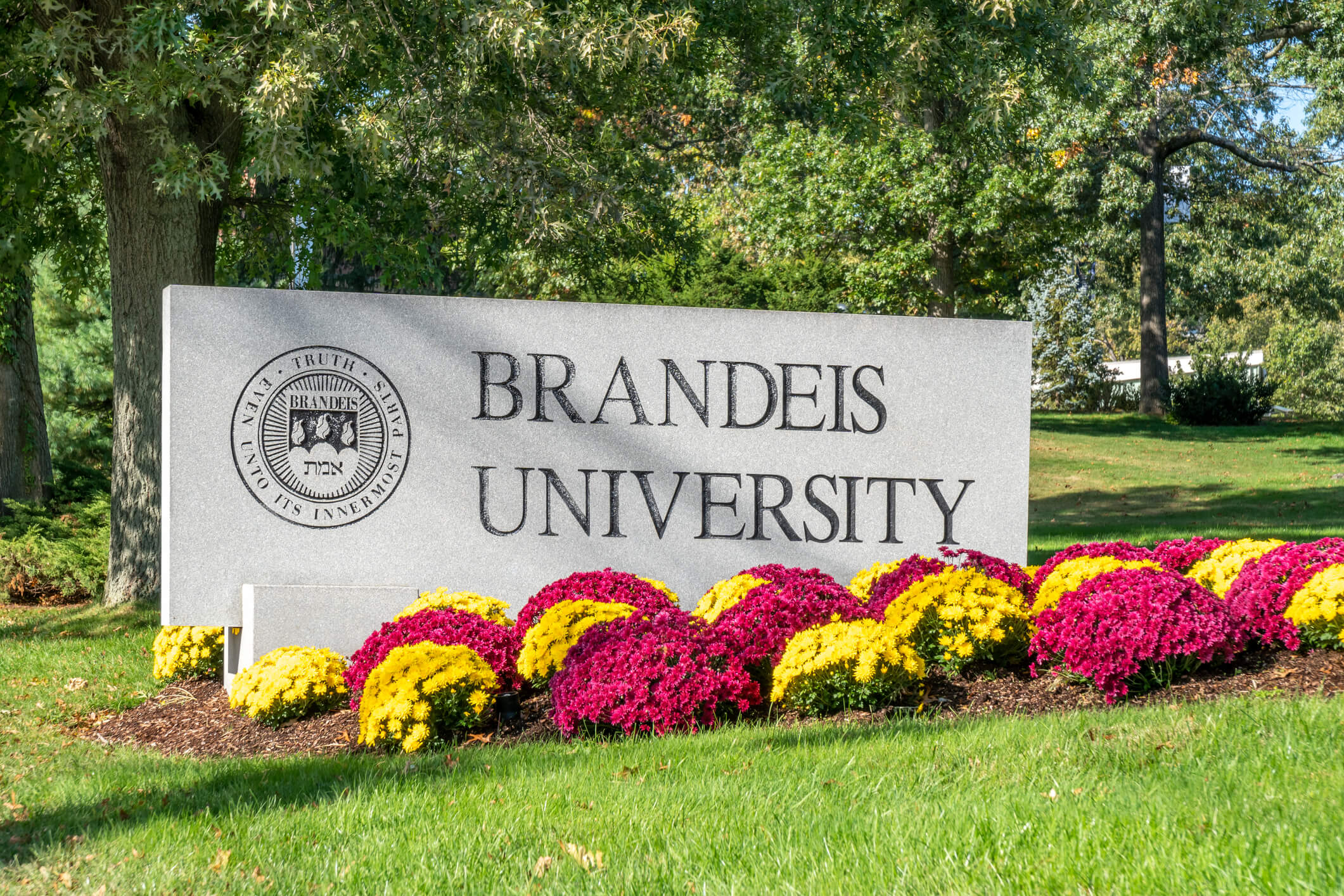Brandeis is ‘anything but’ bad for observant Jews
A recent Brandeis advertisement calling the school ‘anything but Orthodox’ offended observant students

Graphic by Angelie Zaslavsky
“Brandeis was founded by Jews. But, it’s anything but Orthodox.”
A double-page advertisement from Brandeis University bearing these words ran in June 25’s issue of The New York Times Magazine, to the dismay of many observant Jews. Thankfully, the university president sent a written apology to Orthodox students less than a week after the ad ran.
I am one of the observant Jews who found the ad poorly worded and unfortunately, insensitive. I also proudly serve as rabbi and Hillel director at Brandeis. The ad was doubly surprising — almost shocking — to me as someone intimately involved in Jewish life at Brandeis, given how inclusive and comfortable the university is for Jews, including observant Jews.
Brandeis was a trailblazer in making Jewish observance comfortable. It was the first university in the country to have strictly kosher dining under university auspices, thanks to the pioneering efforts of its first Hillel director, Rabbi Irving “Yitz” Greenberg, in 1957. Today there is kosher food (and plenty of other food) available in both dining halls.
Brandeis has had an eruv to make Sabbath observance easier for the last 40 years. In fact, another predecessor at Hillel (a Reform rabbi) joined with local Orthodox rabbis and the university to construct it. For many students today, checking the eruv is a social highlight of the week.
More recently, I helped the athletics center offer an option for separate swimming hours for women and men, which benefits both observant Jews and Muslims.
There is a strong culture of communal Shabbat dinners at Brandeis, and significantly for the observant, Shabbat lunches. Students coordinate Orthodox services, extracurricular Torah learning, and plenty of social activities. We also offered Sephardic High Holiday services and cultural events this year for a steadily growing community.
In a partnership between Hillel and the Orthodox Union, students have had the Torah guidance and home hospitality of two Jewish Learning Initiative on Campus educators for the last 23 years. Leading Orthodox educators from Israel and the U.S. often visit to teach Torah.
A popular Chabad House is just off campus, and many students move between all these opportunities comfortably.
On most major Jewish holidays and for all of Passover, there are no classes. When the current university administration determined in 2021 that it could not allow travel off campus during the pandemic, it undertook — at great expense — to make sure Passover could be observed on campus for the entire week. It was a remarkable achievement of what can be done when students, professionals, professors and the administration work together.

Students have access to one of the world’s most distinguished Jewish studies departments, and professors in various fields who are personally observant. Many faculty at Brandeis are committed to the Jewish community and care deeply about students.
For all of these reasons, we should not let the ad be the last word or leave us with a false impression.
Of course, the university does not conform to or require anyone to follow Jewish practices. Professor Marvin Fox, who taught at Brandeis from 1974 to 1993, once wrote in CrossCurrents, the academic journal about religion, that “At Brandeis you know you are in a Jewish neighborhood,” and also at “a ‘Jewish’ university which is a distinguished member of the larger academic world.”
Brandeis is, in fact, not Orthodox or Reform or Conservative — it is religiously neutral. And it is a respectful and comfortable environment for observant Jews (not only students).
There are virtually no other schools in North America with the combined infrastructure of Hillel at Brandeis and Brandeis University for the full range of Jewish expression and commitment.
None of this negates the fact that Brandeis is also an excellent school for students of all sorts of other Jewish commitments and for students of other backgrounds. It just means that observant Jews can live, study, research and work in a normal academic institution without compromising on their religious integrity.
To contact the author, email [email protected].
















